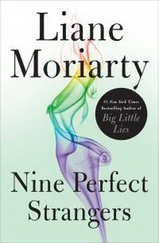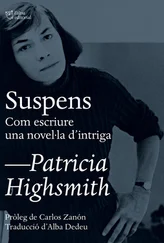Fifteen
Not more than seven yards and not less than five,” the grave, self-assured young man in the chair replied. “No, I did not see anyone.”
“I think about fifteen feet,” said the wide-eyed girl, Katherine Smith, who looked as frightened as if it had just happened. “Maybe a little more,” she added softly.
“About thirty feet. I was the first one down at the boat,” said Ralph Joyce, Miriam’s brother. His red hair was like Miriam’s, and he had the same gray-green eyes, but his heavy square jaw took away the resemblance. “I wouldn’t say she had any enemy. Not enough to do something like this.”
“I didn’t hear one thing,” Katherine Smith said earnestly, shaking her head.
Ralph Joyce said he hadn’t heard anything, and Richard Schuyler’s positive statement ended it: “There weren’t any sounds.”
The facts repeated and repeated lost their horror and even their drama for Guy. They were like dull blows of a hammer, nailing the story in his mind forever. The nearness of the three others was the unbelievable. Only a maniac would have dared come so near, Guy thought, that was certain.
“Were you the father of the child Mrs. Haines lost?”
“Yes.” Owen Markman slouched forward over his locked fingers. A glum, hangdog manner spoilt the dashing good looks Guy had seen in the photograph. He wore gray buckskin shoes, as if he had just come from his job in Houston. Miriam would not have been proud of him today, Guy thought.
“Do you know anyone who might have wanted Mrs. Hames to die?”
“Yes.” Markman pointed at Guy. “Him.”
People turned to look at him. Guy sat tensely, frowning straight at Markman, for the first time really suspecting Markman.
“Why?”
Owen Markman hesitated a long while, mumbled something, then brought out one word: “Jealousy.”
Markman could not give a single credible reason for jealousy, but after that accusations of jealousy came from all sides. Even Katherine Smith said, “I guess so,”
Guy’s lawyer chuckled. He had the affidavits from the Faulkners in his hand. Guy hated the chuckle. He had always hated legal procedure. It was like a vicious game in which the objective seemed not to disclose the truth but to enable one lawyer to tilt at another, and unseat him on a technicality.
“You gave up an important commission—” the coroner began.
“I did not give it up,” Guy said. “I wrote them before I had the commission, saying I didn’t want it.”
“You telegraphed. Because you didn’t want your wife to follow you there. But when you learned in Mexico that your wife had lost her child, you sent another telegram to Palm Beach that you wished to be considered for the commission. Why?”
“Because I didn’t believe she’d follow me there then. I suspected she’d want to delay the divorce indefinitely. But I intended to see her—this week to discuss the divorce.” Guy wiped the perspiration from his forehead, and saw his lawyer purse his lips ruefully. His lawyer hadn’t wanted him to mention the divorce in connection with his change of mind about the commission. Guy didn’t care. It was the truth, and they could make of it what they wished.
“In your opinion was her husband capable of arranging for such a murder, Mrs. Joyce?”
“Yes,” said Mrs. Joyce with the faintest quiver, her head high. The shrewd dark red lashes were almost closed, as Guy had so often seen them, so that one never knew where her eyes rested. “He wanted his divorce.”
There was an objection that Mrs. Joyce had said a few moments before that her daughter wanted the divorce and Guy Haines did not because he still loved her. “If both wanted a divorce, and it has been proven Mr. Haines did, why wasn’t there a divorce?”
The court was amused. The fingerprint experts could not come to agreement on their classifications. A hardware dealer, into whose store Miriam had come the day before her death, got tangled up as to whether her companion had been male or female, and more laughter camouflaged the fact he had been instructed to say a man. Guy’s lawyer harangued on geographical fact, the inconsistencies of the Joyce family, the affidavits in his hand, but Guy was sure that his own straightforwardness alone had absolved him from any suspicion.
The coroner suggested in his summation that the murder would seem to have been committed by a maniac unknown to the victim and the other parties. A verdict was brought in of “person or persons unknown,” and the case was turned over to the police.
A telegram arrived the next day, just as Guy was leaving his mother’s house: ALL GOOD WISHES FROM THE GOLDEN WEST UNSIGNED “From the Faulkners,” he said quickly to his mother. She smiled. “Tell Anne to take good care of my boy.” She pulled him down gently by his ear and kissed his cheek.
Bruno’s telegram was still wadded in his hand when he got to the airport. He tore it into tiny bits and dropped them into a wire trashbasket at the edge of the field. Every one of the pieces blew through the wire and went dancing out across the asphalt, gay as confetti in the windy sunlight.
Sixteen
Guy struggled to find a definite answer about Bruno—had he or hadn’t he?—and then gave it up. There was too much incredible in the possibility that Bruno had done it. What weight did the Metcalf taxi company’s card have? It would be like Bruno to find such a card in Santa Fe and mail it on to him. If it were not the act of a maniac, as the coroner and everyone else believed, wasn’t it far more likely that Owen Markman had arranged it?
He closed his mind to Metcalf, to Miriam, and to Bruno, and concentrated on the work for Palm Beach which, he saw from the first day, would demand all that he had in diplomacy, technical knowledge, and sheer physical strength. Except for Anne, he closed his mind to all his past that, for all his idealistic aims and the fighting for them, and the small success he had known, seemed miserable and grubbing compared to the magnificent main building of the country club. And the more he immersed himself in the new effort, the more he felt recreated also in a different and more perfect form.
Photographers from newspapers and news magazines took pictures of the main building, the swimming pool, the bathhouses, and the terracing in the early stages of construction. Members of the club were also photographed inspecting the grounds, and Guy knew that below their pictures would be printed the amount of money each had donated to the cause of princely recreation. Sometimes he wondered if part of his enthusiasm might be due to a consciousness of the money behind the project, to the lavishness of space and materials he had to work with, to the flattery of the wealthy people who continually invited him to their homes. Guy never accepted their invitations. He knew he might be losing himself the small commissions he would need next winter, but he also knew he could never force himself to the social responsibilities that most architects assumed as a matter of course. Evenings when he did not want to be alone, he caught a bus to Clarence Brillhart’s house a few miles away, and they had dinner together, listened to phonograph records, and talked. Clarence Brillhart, the Palmyra Club manager, was a retired broker, a tall, white-haired old gentleman whom Guy often thought he would have liked as a father. Guy admired most of all his air of leisure, as imperturbable on the bustling, hectic construction grounds as in his own home. Guy hoped he might be like him in his own old age. But he felt he moved too fast, had always moved too fast. There was inevitably, he felt, a lack of dignity in moving fast.
Most evenings Guy read, wrote long letters to Anne, or merely went to bed, for he was always up by five and often worked all day with a blowtorch or mortar and trowel. He knew almost all the workmen by name. He liked to judge the temperament of each man, and to know how it contributed or did not contribute to the spirit of his buildings. “It is like directing a symphony,” he wrote to Anne. In the dusks, when he sat smoking his pipe in a thicket of the golf course, gazing down on the four white buildings, he felt that the Palmyra project was going to be perfect. He knew it when he saw the first horizontals laid across the spaced marble uprights of the main building. The Pittsburgh store had been marred at the last moment by the client’s change of mind about the window area. The hospital annex in Chicago had been ruined, Guy thought, by the cornice that was of darker stone than he had intended. But Brillhart permitted no interference, the Palmyra was going to be as perfect as his original conception, and Guy had never created anything before that he felt would be perfect.
Читать дальше












